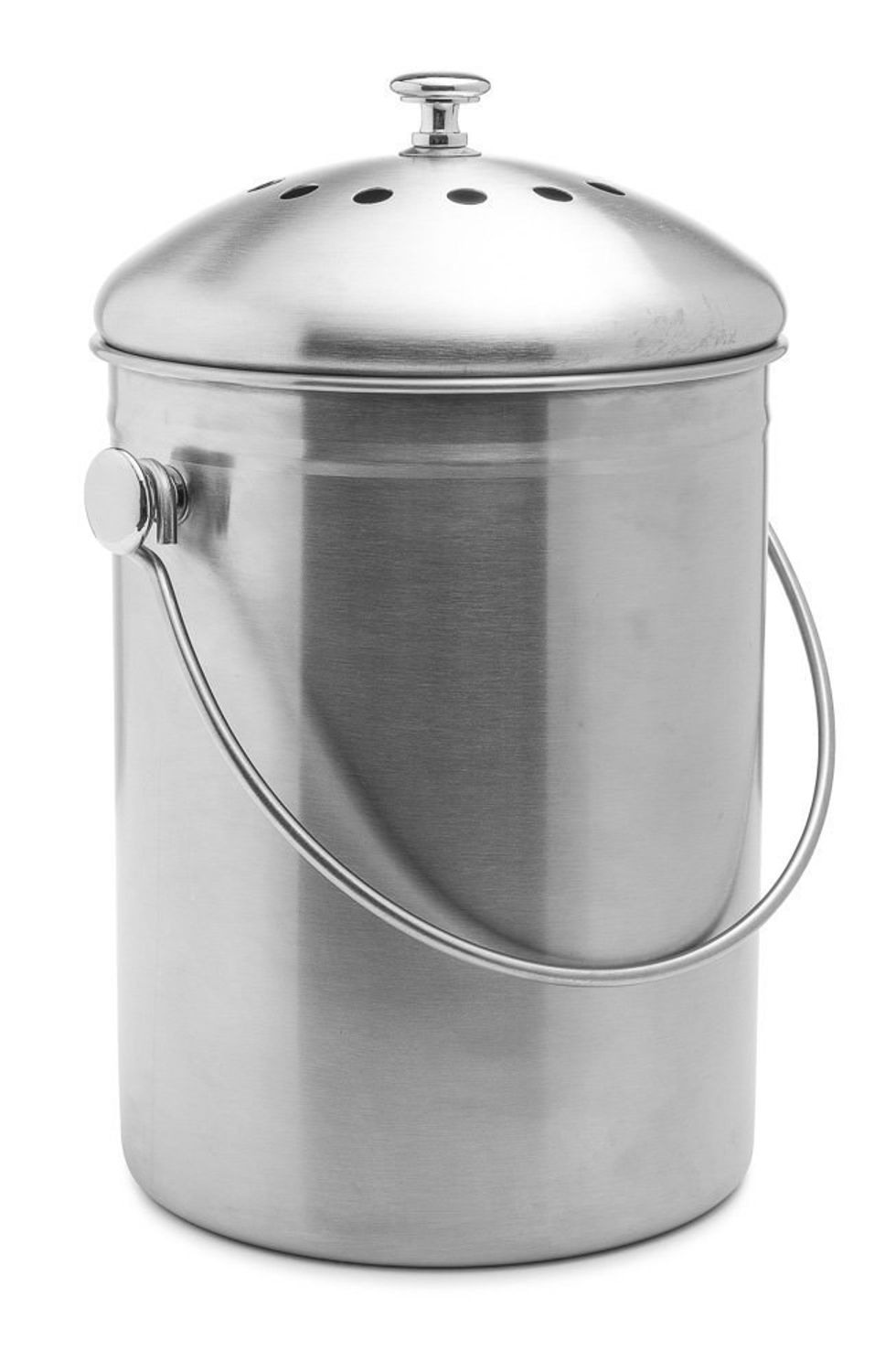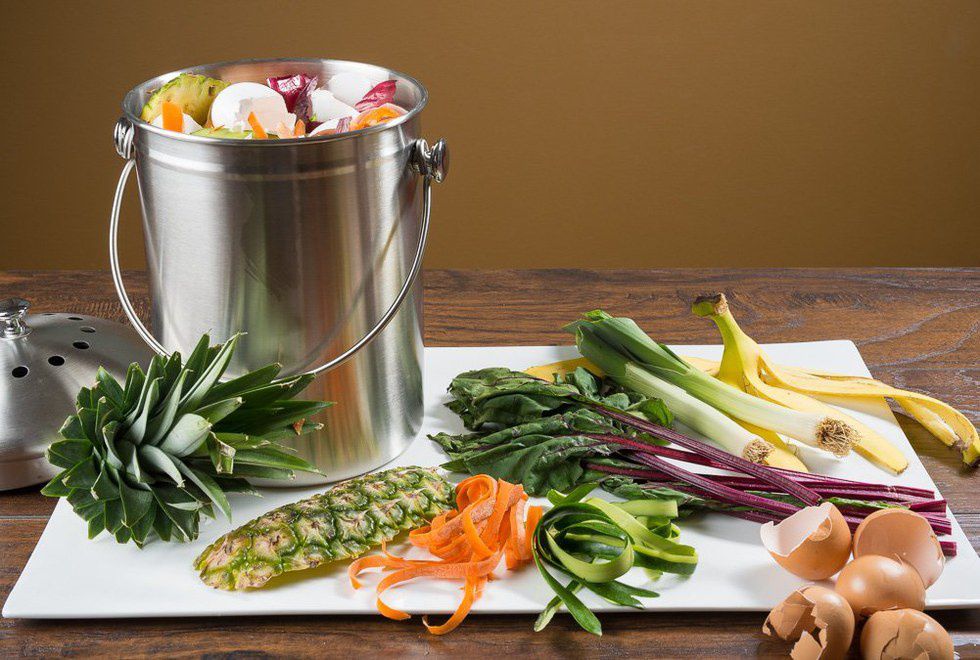As any true American should, I love food. I love going to the grocery store and picking it out. I love a freshly stocked fridge and pantry that are freshly stocked with popcorn and orange juice and avocados. I even love watching people make food that I will never get to eat on Food Network. Most of all, I love eating food. From sweet to savory to spicy to salty, it's all fine by me. However, the American love affair with food is suffering some serious fall out, because although we claim to love food, we are throwing away a shocking amount. Darn those hastily ripening avocados! Here are some stats to help you tune in to just how out of hand the situation has become:
- As much as 40% of the food that America produces, is never eaten
- Americans throw away as much as 165 billion dollars in food each year (That's roughly twice as much as we did in the 70's)
- Here's a visual for you; that's enough food to fill 730 football stadiums!*
This quickly becomes a problem for several reasons.
For one, while the United States is considered a relatively prosperous nation, it is still home to approximately 50 million food insecure households. It's kind of sick to think that we have all of this waste in a country where so many are going to bed hungry.
Pope Francis seems to agree:
“This culture of waste has made us insensitive even to the waste and disposal of food, which is even more despicable when all over the world, unfortunately, many individuals and families are suffering from hunger and malnutrition ... Once our grandparents were very careful not to throw away any leftover food. Consumerism has led us to become used to an excess and daily waste of food, to which, at times we are no longer able to give a just value ... Throwing away food is like stealing from the table of the poor and the hungry.”
That is some strong language that leads to a rather tragic conclusion. And all religious affiliations aside, I don't know about you, but I just can't stand to disappoint this positively jolly face:
A second consequence of this food waste is the toll it takes on the environment.
All of the produce and meat that we waste, also becomes a waste of precious resources, namely water. It takes 67 gallons to produce 1 lb. of oranges, 381 gallons for 1 lb. of cheese, 518 gallons for 1 lb. of chicken, and a shocking 1847 gallons for 1 lb. of beef!**
As if that's not bad enough for the earth, all of this wasted food eventually hits landfills where it will release concentrated mass amounts of methane - a greenhouse gas 20 times more potent than C02!
And if "stealing from the table of the poor" or trashing the planet earth aren't good enough reasons to substantiate a genuine concern over food waste, there is also a financial one; households are wasting as much as 15-20% of the food they are buying. That's expensive. You might as well throw 15-20% of your grocery budget right in the garbage can.
Now clearly, a lot of this issue is rooted in the businesses of grocers and food production, but that doesn't mean that individual consumers don't play a part! Each of us has a consumer power that helps shape the market place, and a life that helps shape the world. The more I think about it, the more I realize that if I want to claim that I care at all, if I want to hold an entire industry accountable, if I want to live according to what seems right and good to me, then gosh darn it I just might have to start learning how to make dirt!
"Dirt?" You ask. "What does dirt have to do with food waste and methane and the fact that I always end up throwing away avocados?" Excellent question brilliant reader. The answer: COMPOST!
Composting allows us to take the food that we would throw away, and use it to create new food. Ahh, how poetic!
The idea of composting at first seemed very overwhelming, especially for a college student like me. It sounded stinky, and time consuming, and pointless, because frankly, I'm not going to invest time and money into a garden when I can barely keep a mountain of laundry from consuming my room. But the more I look into it, the easier and cleaner it looks.
Compost works as an all natural, highly affective fertilizer that enriches gardens or any plant life. And it's really not that hard. There are plenty of websites out there explaining the very simple process so I won't bore you here, but essentially, you're mixing food scraps with other organic material like lawn clippings and giving it a stir once in a while.
Now I know this might sound like it could get real icky real fast, but it doesn't have to. I'm new to this but right now I'm liking the look of composting tumblers that keep everything off the ground and turn with an easy side crank. You can also make scrap collection easy, stink free, and non-ugly with a kitchen compost bin like the one below (available on Amazon for $20, featuring a charcoal filter and almost 4,000 5 star reviews).
For those lacking a green thumb, garden space, or garden time, don't fret! You can still hop on the composting bandwagon! Many more "on the ball" cities are already tuned in to the issue of food waste and offer a food waste collection service. You put it out in a bin just like recycling. This is great for cities where people don't garden or have yard space. It also makes things generally more convenient as the city does most of the work.
However, more likely than not, your city does not offer this service. Instead, find a community garden or a neighbor with a green thumb. Composting produces a valuable product and there are plenty of people in the community that would be more than happy to take it off your hands.
If we are to continue loving food as we do, then it's time that we start caring about how often we waste it. Let's make Pope Francis, mother earth, and our bill fold proud. Let's start making dirt.
* Sources: Natural resources defense council, PLOS One
** see full reports at http://waterfootprint.org/media/downloads/Report47... & http://waterfootprint.org/media/downloads/Report-4...
Also, shout out to John Oliver and the heavy inspiration his video and research played in the writing of this article. Check out his video on food waste on HBO or on YouTube.



























